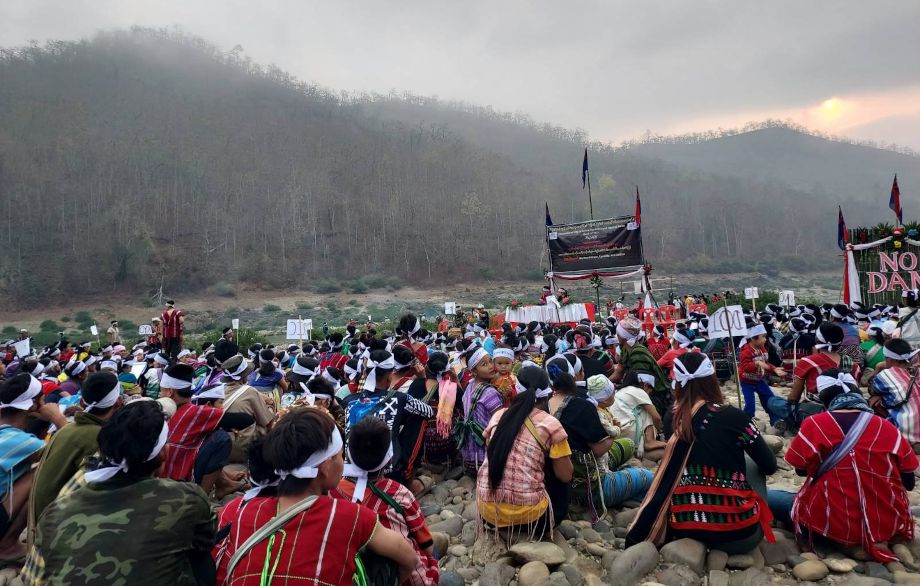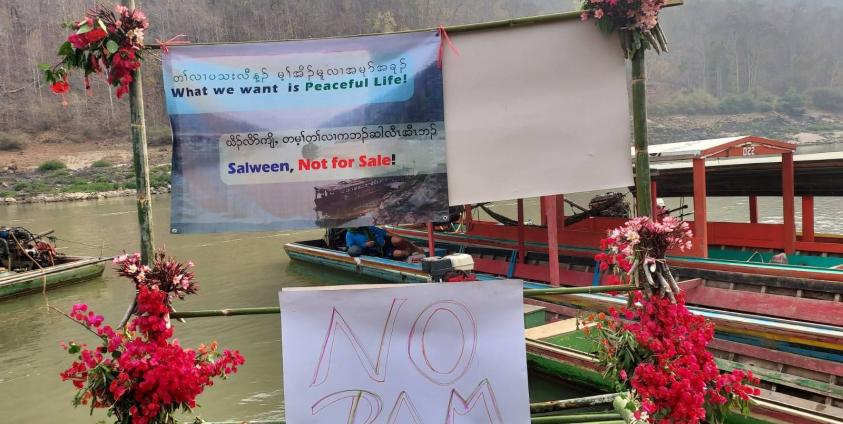The Karen Rivers Watch (KRW) has issued a statement on March 14, the International Day of Action Against Dams and For Rivers, Water and Life, expressing that environmental damage in ethnic areas of Myanmar has increased and the emergency response mechanisms have deteriorated in the two years since the military coup.
According to Saw Tha Boe, the spokesperson for KRW, illegal resource extraction and consumption have escalated in Myanmar's current political situation, especially during periods of armed conflict. Furthermore, large-scale investments have taken advantage of weak monitoring organizations.
"It has become very difficult for those who monitor it. They are in a position of concern from all sides, so they dare not say anything. On the ground, they are doing whatever they want to do. Especially in rivers, there is a lot of mining for metals. In some areas, there are studies for the construction of dams," he told KIC.
Saw Tha Boe added that the reason for the increase in resource exploitation and environmental damage is that illegal activities can be quickly implemented by taking advantage of the country's current unstable political situation.
In addition, local indigenous peoples, civil society groups and partners, including Karen River Watch, have called on international governments, UN agencies, investors and individuals to halt all large-scale hydropower projects to be built on Myanmar's rivers.

KRW has also expressed that large-scale hydropower projects have numerous negative effects on living rivers, ecological preservation, social life, and the environment. Therefore, they are advocating for an immediate halt to these projects.
Furthermore, the leader of Myanmar's military junta has declared the resumption of the Hatgyi Dam project on the Salween River. The project site has been a site of military conflict since 2014, and due to the ongoing ground and air military operations by the Military Council in the area, the local ethnic groups are still forced to flee to safer jungle areas, and humanitarian evidence is needed, according to the statement.
KRW's statement contains nine requests directed towards various groups, including the Karen National Union (KNU), the National Unity Consultative Council (NUCC), and international organizations, donors, and UN agencies, regarding the International Day of Action Against Dams and For Rivers, Water, and Life.
The demands include urging the KNU to take action against large-scale commercial exploitation of natural resources in the Kawthoolei area, and calling on the National Unity Consultative Council (NUCC) to blacklist resource-producing companies and entrepreneurs that provide financial support to the current regime.
The statement also calls on international organizations, donors, and UN agencies to withdraw loan programs from companies that plan to carry out dam projects.
The International Day of Action Against Dams and For Rivers, Water and Life, which fell on March 14, has been organized in several ethnic regions of Myanmar, and various environmental monitoring organizations have issued statements of opinion on the matter.
Moreover, the International Day of Action Against Dams and For Rivers, Water, and Life was spearheaded by KRW, and a demonstration program was organized in E Thoo Htar village on the banks of the Salween River. This area is under the control of the Karen National Union (KNU) and is situated close to where the Hatgyi Dam is scheduled to be built.








